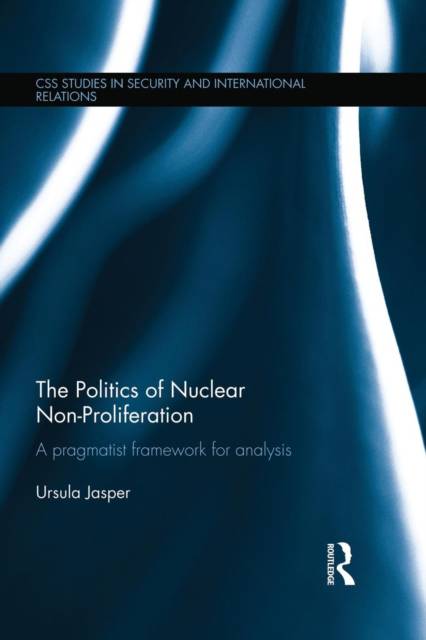
- Afhalen na 1 uur in een winkel met voorraad
- Gratis thuislevering in België vanaf € 30
- Ruim aanbod met 7 miljoen producten
- Afhalen na 1 uur in een winkel met voorraad
- Gratis thuislevering in België vanaf € 30
- Ruim aanbod met 7 miljoen producten
Omschrijving
This book examines the puzzle of why some states acquire nuclear weapons, whereas others refrain from trying to do so - or even renounce them.
Based on the predominant theoretical thinking in International Relations it is often assumed that nuclear proliferation is inevitable, given the anarchic nature of the international system. Proliferation is thus often explained by vague references to states' insecurity in an anarchic environment. Yet, elusive generalisations and grand, abstract theories inhibit a more profound and detailed knowledge of the very political processes that lead towards nuclearisation or its reversal.
Drawing upon the philosophical and social-theoretical insights of American pragmatism, The Politics of Nuclear Non-Proliferation provides a theoretically innovative and practically useful framework for the analysis of states' nuclear proliferation policies. Rather than reccounting a parsimonious, lean account of proliferation, the framework allows for the incorporation of multiple paradigms in order to depict the complex political contestation underlying states' proliferation decisions. This pragmatist framework of analysis offers ways of overcoming long-standing metatheoretical gridlocks in the IR discipline and encourages scholars to reorient their efforts towards imminent "real-world" challenges.
This book will be of much interest to students of nuclear proliferation, international security and IR theory.
Specificaties
Betrokkenen
- Auteur(s):
- Uitgeverij:
Inhoud
- Aantal bladzijden:
- 240
- Taal:
- Engels
- Reeks:
Eigenschappen
- Productcode (EAN):
- 9781138933712
- Verschijningsdatum:
- 21/08/2015
- Uitvoering:
- Paperback
- Formaat:
- Trade paperback (VS)
- Afmetingen:
- 156 mm x 234 mm
- Gewicht:
- 340 g

Alleen bij Standaard Boekhandel
Beoordelingen
We publiceren alleen reviews die voldoen aan de voorwaarden voor reviews. Bekijk onze voorwaarden voor reviews.











